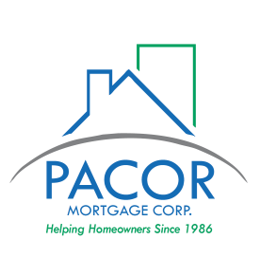As you consider applying for a mortgage, it can be equally comforting and daunting to know that there are so many available options as you look to finance your home purchase.
When you think of a mortgage, the most common one that comes to mind is conventional loans. Conventional loans, sought by more than 60% of mortgage applicants, are granted by private lenders that adhere to the standards established by Fannie Mae and Freddie Mac. This blog will discuss the loan’s requirements to help you decide if a conventional loan is best suited for your needs.
What is a Conventional Loan?
- Conventional loans finance a primary or secondary residence or a rental property.
- A minimum of 3% down payment is required but can vary depending on the lender’s requirements.
- Fixed or adjustable interest rates (ARMs) terms are available.
- There are various term lengths, ranging from 10 to 30 Years.
What are the Conventional Loan Requirements?
Conventional loan requirements are pretty stringent–especially when compared to government-backed mortgages. Private lenders want you to prove that you can afford the property you’re buying and that you will repay the loan. Lenders use these requirements to assess your credit risk:
Credit Score
Conventional loans are best suited to applicants with credit scores greater than 680. However, a minimum score of at least 620 is required for most conventional loans. The higher your credit score, the better your interest rates, loan terms, and overall costs will be, as you are considered a lower credit risk. If your credit score is below 620, other loan options may offer better terms to compensate for your higher credit risk.
Debt-to-Income (DTI) Ratio
A DTI ratio calculates your monthly debt obligations and your income. Lenders prefer numbers between 36% and 40%. However, depending on your circumstances, they may be willing to approve you with a lower DTI. For example, your lender may allow a higher DTI ratio if you have a high down payment (over 20%), excellent credit scores (700+), large cash reserves, stable employment for more than five years, or very high income.
Down payment
While your down payment varies depending on the mortgage amount, you can expect to put anywhere from 5-20% down. For larger loans, some lenders may require 10-20%. However, you can put down as little as 3% under the Conventional 97 program.
Income and asset documentation
Your lender will verify your income, assets, and other financial information. When you apply for a conventional loan, be prepared to provide the following information:
- 60 days of bank statements
- 30 days pf pay stubs
- If you are self-employed, have rental properties, or receive non-salary income such as retirement or a pension, two years of tax returns.
- Two years of W-2s
- Two years of 1099s and proof of social security, pension, or retirement awards
- Rental income from any investment property you own
Property Requirements
This year, the conventional loan limit for a single-family house is $647,200, up over 18% from 2021. However, greater maximum loans are available for areas with higher costs, such as Los Angeles, California, or Seattle, Washington. These limits will increase if you plan to finance multiple-unit properties.
Conventional loans can be used for many property types, including single-family houses, Planned Unit Developments (detached properties within a homeowner’s group), condos, and multi-unit dwellings. Conventional loans can also finance the purchase or rental of a second property. Because the property is not your primary residence, lenders may charge higher interest rates and lower down payments.
Private Mortgage Insurance
Private mortgage insurance (PMI) protects the lender in the event of default. However, if you make a minimum of 20% down payment, PMI is not required. In addition, once your loan-to-value ratio reaches 78%, your PMI automatically cancels.
Trust Pacor Mortgage
A qualified mortgage broker can provide additional guidance, help you evaluate your options, and choose the right loan for you. Pacor Mortgage is happy to assist you with any questions regarding a conventional loan or other lending options.
Call us today at 773-881-7744, or visit our website to learn more or pre-qualify for a mortgage. Follow us on Facebook for helpful finance and home tips!
2021 Pacor Mortgage Corp. Pacor Mortgage Corp is located at 14930 Cicero Ave, Oak Forest, IL 60452, Phone 773-881-7744 (Unique Identifier #120945). For Licensing information, go to: www.nmlsconsumeraccess.org. Pacor Mortgage Corp is an equal housing lender and is licensed by the Secretary of State under the Illinois Residential Mortgage Lending Act and is assigned Illinois Residential Mortgage License MB.0000892. Pacor Mortgage Corp branches operate with the following licenses and is assigned Illinois Residential Mortgage License MB.0000892-001, with a Wisconsin License # 260345BA, Palos Heights NMLS 261297 and is assigned Illinois Residential Mortgage License MB.0000892-008, Colorado, Licensed by the Department of Business Oversight under the California Residential Mortgage Lending Act, California license # 41DBO-67516, Florida MLD1075, Indiana DFI 13177, Maryland 23528, Michigan FL0828, Michigan SR1130, Minnesota MN-MO-120945, North Carolina L-184546, Ohio RM.804151.000, Pennsylvania 43855, South Carolina, MLS – 120945, Wisconsin 120945BA, Kalamazoo, MI NMLS 120945 also DBA Lake Pacor Home Mortgage. This is not an offer for an extension of credit, a rate lock or a commitment to lend. All loans must satisfy company underwriting guidelines and any investor overlays. Any of the advertised products may be discontinued at any time. Information and pricing are subject to change at any time and without notice. Loans are being committed and closed at expressed rates although these rates change and may not be available at time of your lock in, commitment and / or closing. Pacor Mortgage Corp is not affiliated with your current lender, nor is it an agency or extension of the Federal Government, Fannie Mae, Freddie Mac or HUD.
Sources
https://pacor.com/conventional-loans/
https://www.rocketmortgage.com/learn/conventional-mortgage
https://assurancemortgage.com/everything-need-know-conventional-loans/

